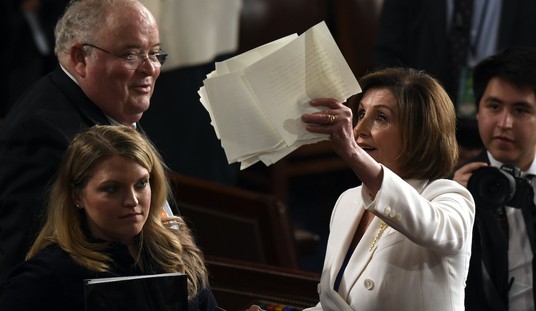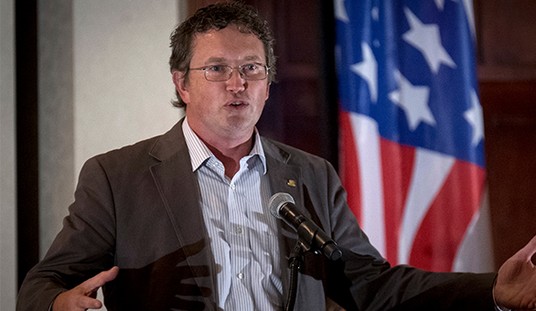
FILE – In this Sept. 27, 2018 file photo, Missouri Attorney General and Republican U.S. Senate candidate Josh Hawley speaks to supporters during a campaign stop in St. Charles, Mo. Missouri’s Democratic Sen. Claire McCaskill is making a bid for a third term in a state that’s trended increasingly red in recent years, setting up a nationally watched showdown that could be pivotal to party control of the Senate. (AP Photo/Jeff Roberson, File)
One of the things that made Josh Hawley such an appealing candidate coming into 2018 was his experience going after big tech companies and their use of private data. Specifically, Hawley had made himself a major thorn in the side of Google, who has a long history of just giving away your data for the right price.
His tech-centric view of the issues of the day continues in the Senate, where Hawley has come out swinging against social media companies and their treatment of conservative voices. This particular tack has led up to Hawley introducing a bill – the Ending Support for Internet Censorship Act – in an effort to force social media companies like Facebook and Twitter to provide First Amendment-level protections to its users.
The cost? More government regulation.
This is where I get nervous. One of the better qualities of the Trump administration has been to reduce regulation almost completely across the board, but now we have members of the GOP wanting to add more to the Internet. It’s not something I am sure I can endorse.
I get that social media targets conservatives in a very unfair manner. Twitter, in particular, has taken down quite a few accounts for the sole reason of expressing conservative viewpoints (particularly on LGBT and abortion grounds). Facebook has targeted conservative pages and even blocked conservative websites from appearing in its ill-fated “News” sidebar.
But forcing them to prove to the government that they are not favoring one political ideology over another is an overly broad and dangerous venture.
Via David French at National Review:
Hawley wants to replace common sense with a legal fiction, making Facebook responsible for user comments unless it can satisfy an extraordinary condition — it has to prove to the Federal Trade Commission by clear and convincing evidence that it doesn’t moderate content in a manner “designed to negatively affect a political party, political candidate, or political viewpoint” and that its moderation doesn’t “disproportionately restrict or promote access to, or the availability of, information from a political party, political candidate, or political viewpoint.”
Hawley’s standard is most assuredly not the viewpoint-neutrality standard seen in First Amendment case law. It’s a carnival funhouse version that would invite an enormous amount of bureaucratic meddling. For example, conservative sites and posts often do very well on Facebook, in part because of its older user base and partly because conservative Facebook users have gotten quite good at creating viral content. Will a Kamala Harris administration decide that disproportionate conservative success violates political neutrality?
Laws that purport to regulate First Amendment–protected speech bear a special burden of precision and clarity. They have to clearly explain what is prohibited and permitted. Vague or overbroad laws violate the Constitution in part by failing to provide fair notice of government standards. Hawley’s bill, as written, is extraordinarily vague. Terms such as “disproportionate” are very hard to define. Disproportionate to what? User percentages? Population percentages? User engagement? The standard is extraordinarily malleable.
My gut reaction is very much in line with French here – particularly on the question of “What happens when the Democrats take power again?” Realize that while they are currently acting like lunatics, sooner or later they or someone like the current ones running for President (which include an anti-vaccine propagandist, a series of pro-abortion on demand supporters, and a furry) will have the power to go the opposite way.
However, despite all that hesitation, I don’t necessarily disagree with the idea that we have to do something. Social media has only become more of a wasteland in recent years, and it’s not getting any better. The fact that emotionally- and politically-based decisions are being handed down from the site moderators without rational explanation or a clear example of what rule was broken makes for a bad business model.
It’s just very hard to support increasing the scope of the government’s power to force them to do that, and while French’s proposal of a “voluntary First Amendment-based moderation” from websites is a nice idea, it’s a pipe dream that is very difficult to see happening anytime soon.
So, where does that leave us? Other than nuking social media from high orbit (which is not a bad idea, I assure you) we’re going to have to tough it out for the time being or quit. Voting with your feet should be the answer, but that obviously requires a big sacrifice from an increasingly screen-dependent society.
Hawley’s heart is in the right place here, but I am not sure I can go along with more regulation. The problem is, if regulation is not the answer, what is?













Join the conversation as a VIP Member